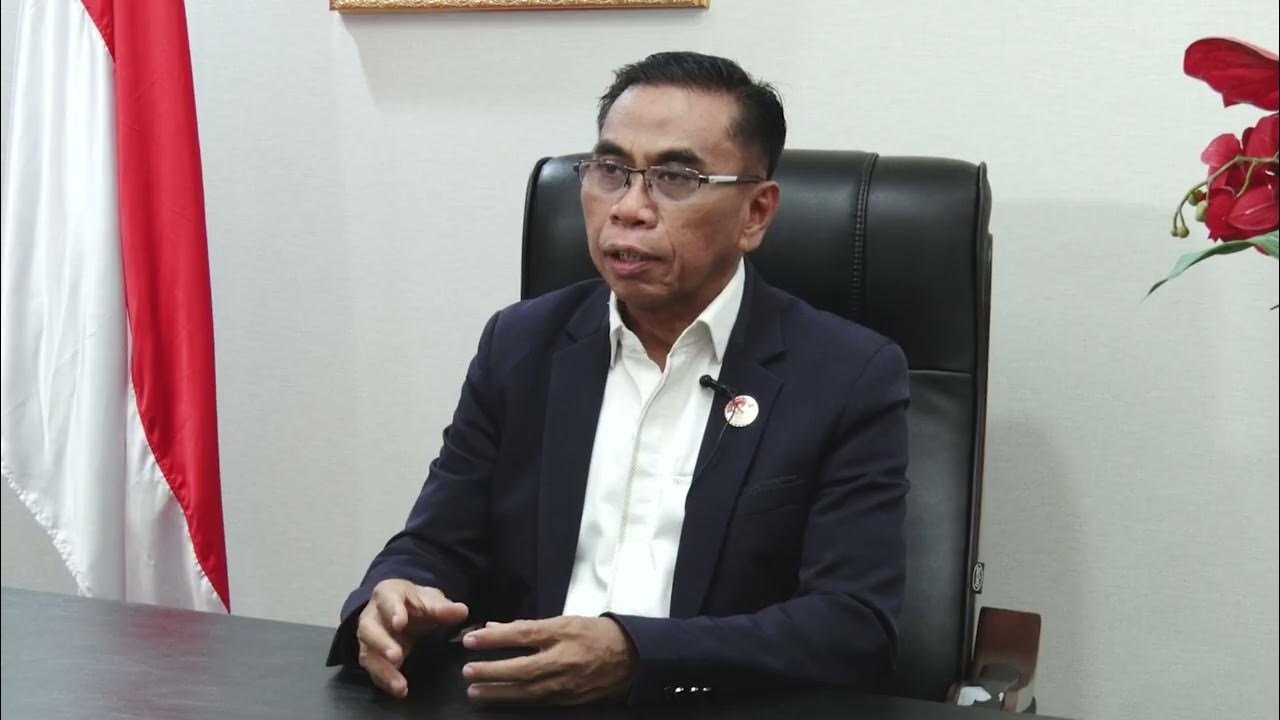Pancasila Sebagai Ideologi Nasional
Summary
TLDRThis episode discusses Pancasila as Indonesia's national ideology, emphasizing its dual roles as both an ideology of the state and a guiding principle for the country's goals. The speaker explains how Pancasila, rooted in Indonesia's cultural and social values, functions as a unifying force in a diverse society. Pancasila is presented as a flexible and adaptable ideology, capable of evolving with the times while serving as a foundation for national unity, governance, and development. The episode also touches on its historical context and the importance of maintaining its principles in modern Indonesia.
Takeaways
- 📜 Pancasila is the national ideology of Indonesia, serving both as a philosophical foundation of the state and a guiding principle for national unity.
- ⚖️ As a national ideology, Pancasila represents the nation's aspirations and ideals, whereas as a state ideology, it serves as the foundation for governance and law.
- 🌍 The word 'ideology' comes from 'idea' (concept, ideal) and 'logos' (science or knowledge), making it the study of ideas and national aspirations.
- 🏛️ Pancasila has been formalized as Indonesia’s national ideology through various legal enactments, such as TAP MPR No. 18 in 1998, which affirms Pancasila's role as both the state’s foundation and ideology.
- 🤝 Pancasila functions as a common platform, or 'common ground,' that unites different groups within Indonesian society, irrespective of their backgrounds.
- 🔍 Ideologies can be divided into 'open' and 'closed' types, with Pancasila being classified as an open ideology—meaning it can adapt to changing times and remain relevant.
- 📅 The development of Pancasila as a national ideology has undergone three stages: first as a unifying ideology, second as an ideology for national development, and third as an open ideology.
- 🛠️ As an ideology for national development, Pancasila legitimizes the state's authority to implement strategic policies for national welfare.
- 🔄 An open ideology like Pancasila must be adaptable to societal evolution, ensuring that its principles align with contemporary needs and global changes.
- 💡 Pancasila, as a social and ethical guide, promotes the resolution of conflicts and the maintenance of unity in Indonesia’s diverse and pluralistic society.
Q & A
What is the significance of Pancasila as a national ideology?
-Pancasila serves as both the ideological foundation and the guiding principles of the Indonesian nation, representing the goals and aspirations of the state. It acts as a platform that unites various political, ethnic, and religious groups in Indonesia.
How does Pancasila function as both a national and state ideology?
-As a national ideology, Pancasila embodies the nation's goals and ideals. As a state ideology, it functions as the philosophical foundation of Indonesia, guiding the administration and governance of the country.
What are the two perspectives of Pancasila mentioned in the script?
-The two perspectives are: Pancasila as a national ideology, representing the aspirations of the country, and Pancasila as a state ideology, serving as the constitutional foundation of Indonesia.
What is the origin of the word 'ideology' as explained in the script?
-The word 'ideology' is derived from 'idea' (concept or ideal) and 'logos' (science or knowledge). It refers to the study of ideas and ideals, especially those that form the basis of political or social systems.
How does the script differentiate between 'ideology' in a broad and narrow sense?
-In a broad sense, ideology refers to knowledge about national ideals, while in a narrow sense, it specifically refers to the set of principles guiding the theoretical and practical governance of a nation.
What is the difference between an open and closed ideology?
-An open ideology is flexible and can adapt to new developments and changes in society, while a closed ideology is rigid, allowing little room for interpretation or adaptation to changing circumstances.
What role did Soekarno play in establishing Pancasila as a national ideology?
-Soekarno positioned Pancasila as a common platform that could unite diverse groups within Indonesia, from nationalists to religious factions, ensuring consensus and national unity.
What are the three stages of Pancasila as a national ideology according to the script?
-The three stages are: 1) Pancasila as an ideology of unity, uniting a diverse and pluralistic society, 2) Pancasila as an ideology of development, guiding national policies and strategies, and 3) Pancasila as an open ideology, allowing for adaptation and contextualization based on societal changes.
What are the three dimensions of an open ideology as described in the script?
-The three dimensions are: 1) Reality: the ideology must align with the social and cultural context, 2) Idealism: it must reflect the nation's goals and aspirations, and 3) Flexibility: it must be adaptable to new ideas and developments.
What is the role of Pancasila in conflict resolution within Indonesian society?
-As a national ideology, Pancasila serves as an integrative force that promotes social harmony. It provides ethical guidelines for resolving conflicts, ensuring that political and societal institutions act impartially to mediate and resolve disputes.
Outlines

Cette section est réservée aux utilisateurs payants. Améliorez votre compte pour accéder à cette section.
Améliorer maintenantMindmap

Cette section est réservée aux utilisateurs payants. Améliorez votre compte pour accéder à cette section.
Améliorer maintenantKeywords

Cette section est réservée aux utilisateurs payants. Améliorez votre compte pour accéder à cette section.
Améliorer maintenantHighlights

Cette section est réservée aux utilisateurs payants. Améliorez votre compte pour accéder à cette section.
Améliorer maintenantTranscripts

Cette section est réservée aux utilisateurs payants. Améliorez votre compte pour accéder à cette section.
Améliorer maintenant5.0 / 5 (0 votes)






